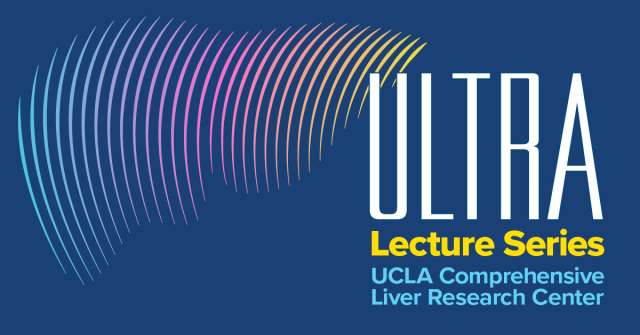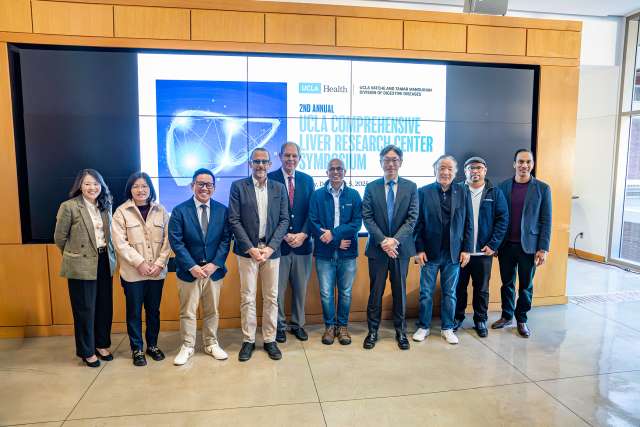Comprehensive Liver Research Center at UCLA

Register today
Join us for the UCLA Liver Translational Research (ULTRA) monthly seminar series where invited guest speakers, Comprehensive Liver Research Center (CLRC) faculty and UCLA trainees present their latest research findings and discuss evolving areas of interest and collaborations in liver-related research.
2nd Annual Comprehensive Liver Research Center Symposium
Exciting work in liver and metabolism research took center stage at the 2nd Annual Comprehensive Liver Research Center Symposium! Huge thank you to our incredible speakers and kudos to the four posters of excellence! Stay tuned—2026 will bring even more insights into liver health!


Pilot & feasibility awardees
The pilot and feasibility mechanism seeks to fund innovative projects that explore basic-translational mechanisms into the pathophysiology of the MASLD-MASH-cirrhosis-HCC spectrum.
Latest news

New T32 grant will support training in metabolism and metabolic disease
This award support MD, PhD, and MD-PhD postdoctoral fellows studying metabolism and metabolic-related diseases including obesity, fatty liver, type 2 diabetes, diabetes complications, and cardiometabolic disorders. The training program is led by Andrea Hevener, PhD; Tamer Sallam, MD, PhD; and Peter Tontonoz, MD, PhD.

Peter Tontonoz, MD, PhD, honored with Basic Research Prize from the American Heart Association
This recognition highlights Dr. Tontonoz’s pioneering research on lipid metabolism and its critical implications for cardiovascular and metabolic diseases.

UCLA study identifies key protein that helps liver cancer resist heat-based treatment
A new study led by UCLA investigators may help explain why certain liver tumors return quickly after thermal ablation, a widely used minimally-invasive, image-guided technique that kills cancer cells by applying intense heat through a needle-like probe.

Beyond the Scope highlights the Comprehensive Liver Research Center
The new UCLA Comprehensive Liver Research Center brings to bear the expertise from throughout the Division of Digestive Diseases and the UCLA campus in a coordinated effort to tackle one of the major public health issues we face in Southern California and as a nation: the growing prevalence of metabolic dysfunction-associated steatotic liver disease (MASLD).

Over 4 million US adults with chronic liver disease can be grouped into unique risk groups based on barriers to care
Dr. Carrie R. Wong, the study's lead author on these findings published in the peer-reviewed PLOS ONE, point to the need for interventions aimed at reducing possibly avoidable hospitalizations among the highest-risk people with chronic liver disease.

Study finds targeting inflammation may not help reduce liver fibrosis in MAFLD
“Liver fibrosis is the critical feature that creates chronic liver disease and liver cancer. If we can keep fibrosis in check then we can meaningfully impact liver disease,” said Tamer Sallam, MD, PhD.
